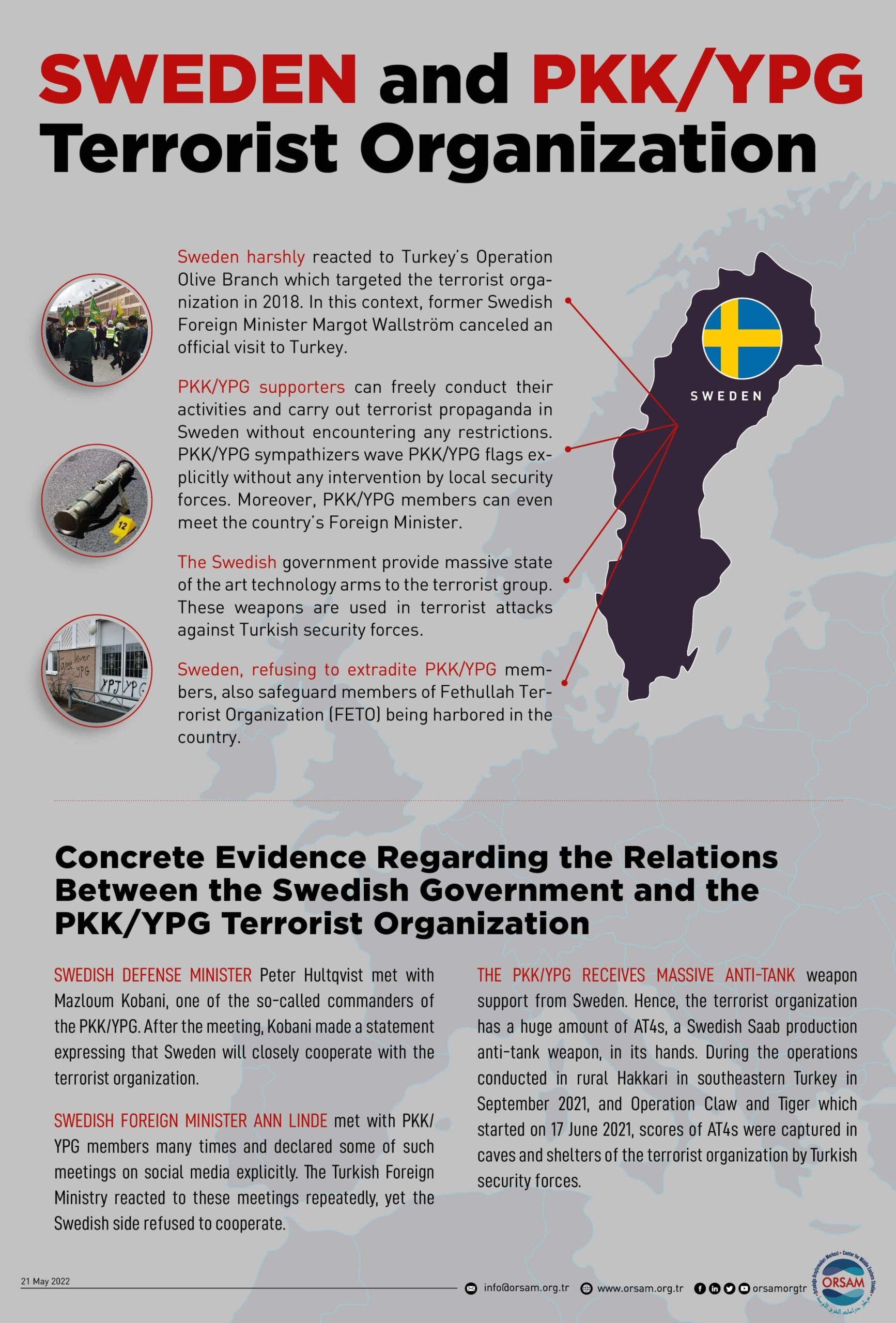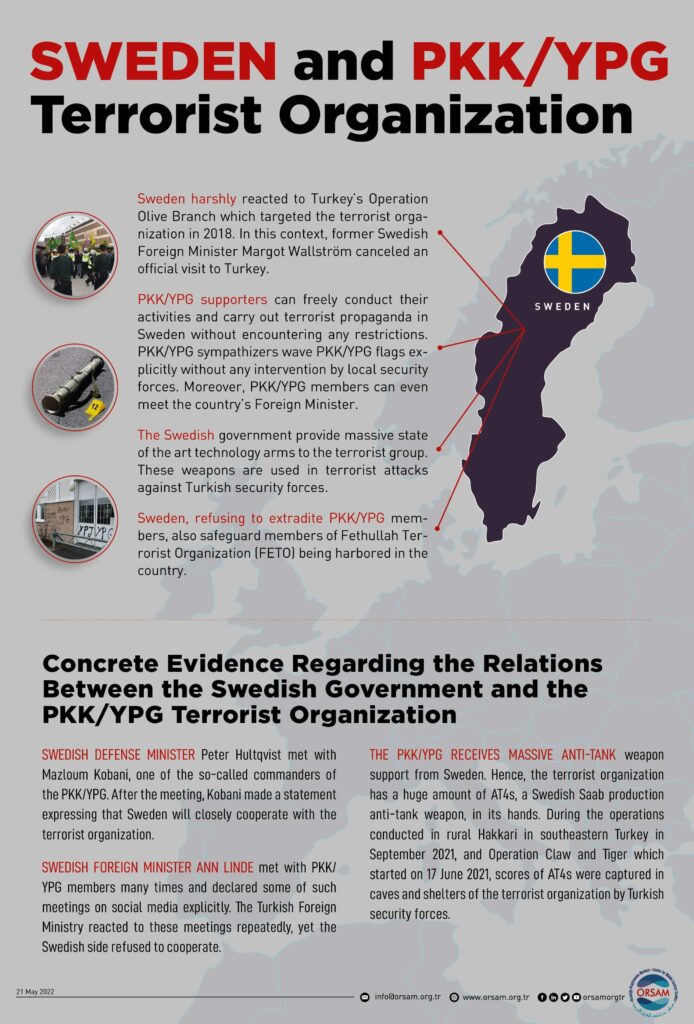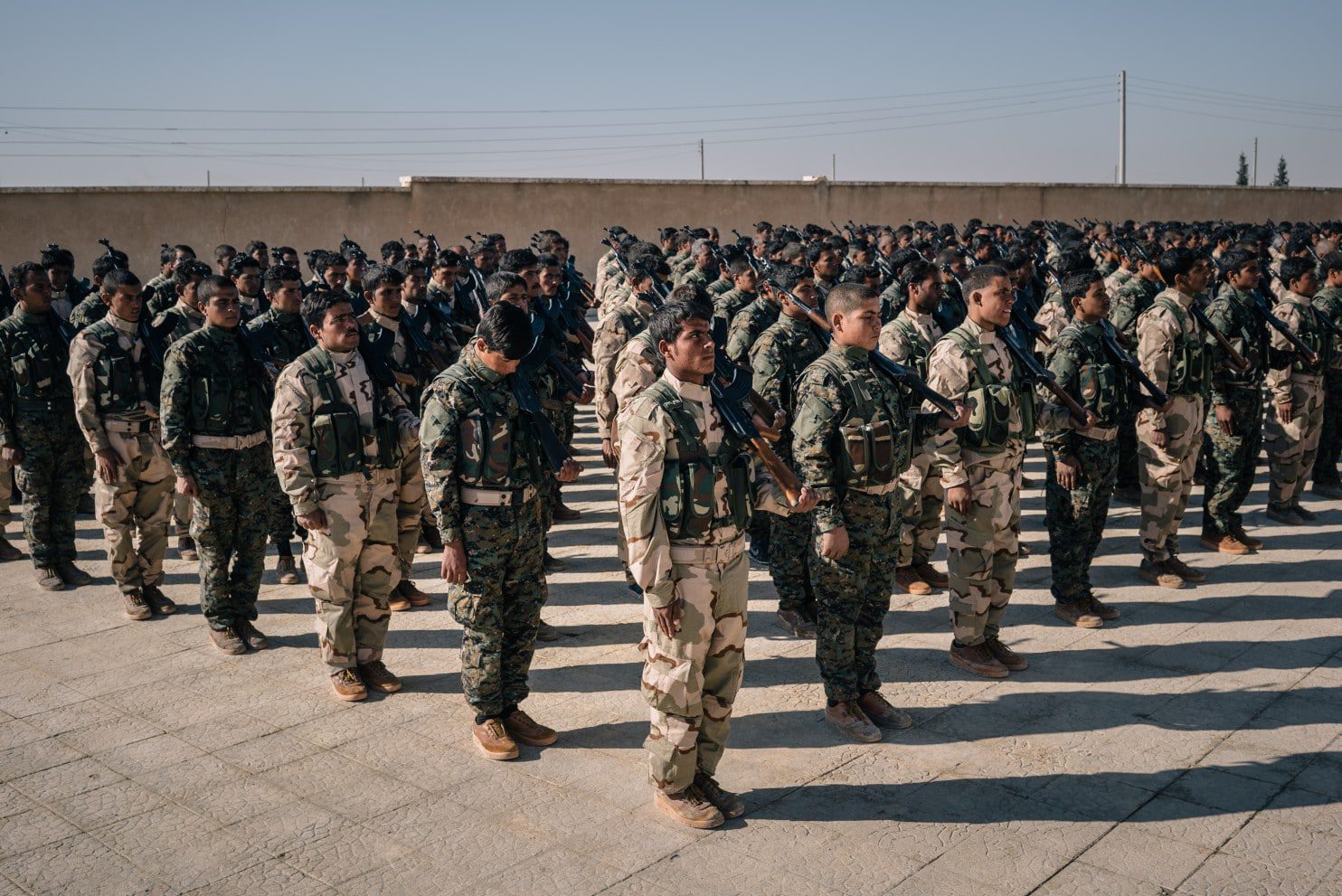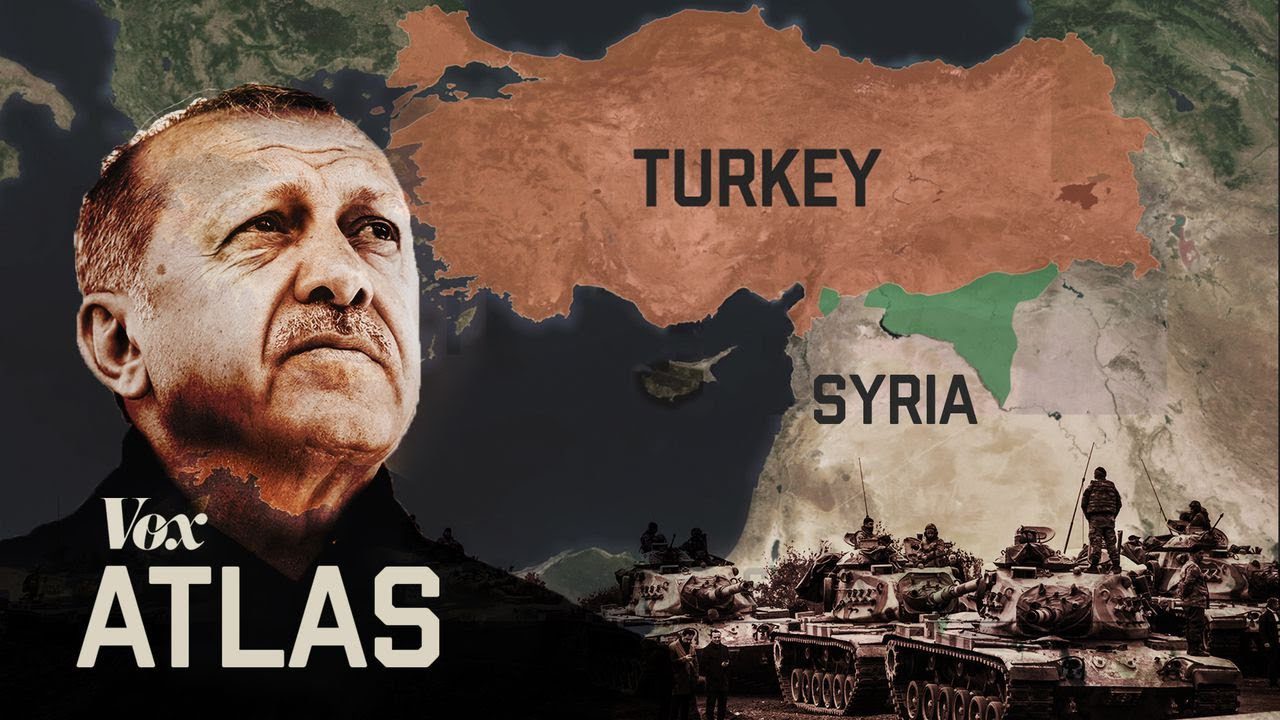President Timothy G. Lynch
College of Staten Island
2800 Victory Boulevard
Staten Island, NY 10314
January 1, 2025
Dear President Lynch,
I write to you with deep concern regarding a matter that has the potential to tarnish the reputation of the College of Staten Island (CSI). I am compelled to address the recent remarks made by Ms. Özlem Gönér, who, as a Steering Committee member of the Emergency Committee for Rojava, appeared on Democracy Now on December 24, 2024. In her commentary, Ms. Gönér stated that “Turkey is a major threat to Kurds and to democratic experiments that Kurds have been implementing in the region starting in 2014,” and continued by claiming that “Turkey, Israel, and the U.S. collectively are trying to carve out this land, and Kurds are under threat.” While these statements may appear innocuous on the surface, they carry with them a dangerous misrepresentation of the realities on the ground, particularly concerning Türkiye’s legitimate national security concerns and its role as a NATO ally.
Ms. Gönér’s assertions are not only misleading but are also ideologically aligned with a group that maintains dangerous ties to the PKK (Kurdistan Workers’ Party), a Marxist-Leninist organization recognized as a terrorist group by the United States, the European Union, and Türkiye. Over 45,000 women, children, teachers, doctors and men, lives have been lost to PKK violence. U.S. Secretary of State Antony Blinken, during his visit to Ankara on December 12, 2024, aptly described the PKK as “an enduring threat” to Türkiye. Furthermore, U.S. Secretary of Defense Lloyd Austin December 9th 2024 acknowledged Türkiye’s legitimate security concerns, particularly regarding the Syrian Democratic Forces (SDF=YPG, PYD), which are closely tied to the PKK. December 13, 2024 Former CIA Senior Agent Glenn Corn on the Cipher Brief said” Turkiye is a much more strategic partner of importance for the U.S then working with YPG, PYD / PKK “Kurds”. Also Former US Ambassador to Turkey David Satterfield : recognizing A NATO Partner and Ally Turkey to defend itself against terror to exercise it right of self-defense CBS News December 18, 2024. December 19 2024 Former US Ambassador to Turkiye James Jeffery “US Backed SDF, given its undeniable ties to the PKK, is a serious national-security threat to Turkiye.”
During Senate Armed Services Committee Hearing on combating ISIS, U.S. Senator Lindsey Graham (R-South Carolina) questions Secretary Carter and General Dunford on the U.S. military strategy in working with terrorist PKK and YPG in Syrai and Iraq highlighting the YPG’s connections to the PKK and their acts of terror, which have cost thousands of civilian lives.
The political framework of Rojava, which Ms. Gönér supports, is rooted in the ideology of Abdullah Öcalan, the leader of the PKK, thus creating a direct or indirect link between her actions and the PKK’s objectives. It is crucial to distinguish between humanitarian advocacy and political or military affiliations.
Despite any claims of neutrality, the ideological overlap between these groups raises significant concerns about the motivations behind Ms. Gönér’s rhetoric.
First and foremost, Türkiye’s official name—the “Republic of Türkiye”—is not merely a formality but represents the nation’s sovereignty and identity. By referring to the country as “Turkey,” Ms. Gönér, along with others in her circle, undermines the diplomatic respect due to a sovereign state. This disregard for proper naming conventions is a symptom of a broader trend to delegitimize Türkiye and its government on the international stage. Furthermore, Ms. Gönér’s remarks about the deaths of journalists Nazım Daştan and Cihan Bilgin, who she claims were targeted by Türkiye are baseless and lack substantiation in any court of law, including the European Court of Human Rights (ECHR). There is no publicly available information supporting her allegations. Her attempt to frame these deaths as a pretext to vilify Türkiye’s counterterrorism efforts only serves to further distort the narrative surrounding the country’s legitimate security actions.
Also US State Department has never taken Ms Goner position.
Ms. Gönér’s comments about Türkiye’s engagement with ISIS are equally misguided. She falsely portrays Türkiye as a supporter of ISIS, a claim that has been repeatedly debunked by numerous international figures. U.S. Secretary of State Antony Blinken, during his visit to Ankara on December 12, 2024, correctly described the PKK & ISIS as “an enduring threat” to Türkiye. Additionally, U.S. Secretary of Defense Lloyd Austin, on December 9, 2024, recognized Türkiye’s legitimate security concerns, particularly regarding the Syrian Democratic Forces (SDF), which have strong ties to the PKK. Former CIA Senior Agent Glenn Corn, on December 13, 2024, emphasized that Türkiye is a far more strategic partner for the United States than groups like the YPG/PYD/PKK and ISIS . Former U.S. Ambassador to Turkey, David Satterfield, former U.S. Ambassador James Jeffrey also affirmed the necessity of recognizing Türkiye’s right to self-defense in the face of these terrorist threats.
Turkey has played a significant role in the fight against ISIS with only country with Soldier going face to face on the ground , receiving recognition from various Western leaders and institutions.
NATO Secretary General Jens Stoltenberg has highlighted the alliance’s and Turkiyes commitment to combating international terrorism, including ISIS.
Think Tanks: Council on Foreign Relations (CFR): While CFR has critically analyzed Turkey’s strategies, it acknowledges Turkey’s active military campaigns against ISIS. In an article titled “Turkey Is Lying About Fighting ISIS,” CFR discusses the complexities of Turkey’s involvement, indicating that while Turkey has engaged ISIS militarily, there are nuances to its broader regional strategy.
António Guterres: In October 2019, UN Secretary-General António Guterres expressed acknowledging Turkey’s security concerns related to fighting ISIS.
United Nations: Former Secretary-General Ban Ki-moon emphasized Turkey’s pivotal role in the fight against ISIS
Germany: The German government backed Turkey’s military initiatives against ISIS, with officials noting the importance of Turkey’s role in the regional fight against terrorism. India: In October 2019, during Turkey’s military operations in northeastern Syria, Turkey justified as part of its fight against terrorist groups, including ISIS.
Saudi Arabia – Saudi Arabia has also publicly supported Türkiye’s fight against ISIS, both in terms of military operations and international diplomatic efforts to combat terrorism.
Indonesia – Indonesian leaders have consistently commended Türkiye’s efforts in combating ISIS and terrorism in the region .
Malaysia – The Malaysian government has recognized Türkiye’s role in the fight against ISIS.
United Arab Emirates (UAE) – UAE leaders have praised Türkiye’s role in countering terrorism, particularly ISIS, noting Türkiye’s significant contributions to the security of the region.
Kuwait – The Kuwaiti government has expressed gratitude towards Türkiye for its contribution to the regional fight against ISIS, especially in terms of humanitarian and military efforts.
Jordan – As a neighboring country affected by ISIS, Jordan has often acknowledged Türkiye’s efforts in fighting ISIS, especially considering their shared interest in regional stability.
The Center for Strategic and International Studies (CSIS) has analyzed Turkey’s role in regional security dynamics. In discussions about Turkey’s actions in Syria, CSIS noted the complexities of Turkey’s involvement in the region, including its stance against ISIS.
These acknowledgments underscore Turkey’s active participation in the international effort to combat ISIS, as recognized by U.S. officials and policy analysis organizations.
Moreover, it is important to address Ms. Gönér’s use of the phrase “a big threat to the Kurdish population.” Such rhetoric ignores the fact that over 15 million Turkish Kurds live peacefully within Türkiye, enjoying equal rights under the law. Many of these Kurdish citizens hold positions of great responsibility, including in Türkiye’s highest offices. The PKK, however, is not representative of the Kurdish population; it is a terrorist organization that has waged a violent campaign against both Turkish civilians and the Kurdish people themselves.
o frame Türkiye’s counterterrorism efforts as an attack on the Kurdish people is not only inaccurate but harmful. Türkiye has long been a protector of vulnerable Kurdish populations, as demonstrated by its efforts during the Gulf War, when it sheltered over 500,000 Kurds fleeing Saddam Hussein. Since the Syrian Civil War began in 2012, Türkiye has hosted millions of refugees, including tens of thousands of Syrian Kurds, providing them with refuge from the brutality of PKK and YPG forces.
Türkiye’s anti-terror operations are focused on groups like the PKK and its affiliates, such as the YPG and PYD, which have exploited regional instability to pursue separatist and extremist goals. Not Kurds.
In recent statements, Nechirvan Barzani, President of the Kurdistan Regional Government (KRG) , has emphasized the need for the Kurdistan Workers’ Party (PKK / YPG- PYD ) to cease its activities within the Kurdistan Region. He has described the PKK / YPG, PYD as a “headache” for both the Kurdistan Region and Iraq, criticizing the group. Mr. Barzani has called on the terrorist YPG linked to PKK to distance its operations from the people of ”kurdistan”, highlighting that the group’s actions are detrimental to the region’s stability and security.
On December 25th 2024 Abdullah Keddo, a representative of the Kurdish National Council in Syria (ENKS), the main political representative of Kurds “We refuse to accept the presence of the PKK and its affiliates in Syria, all of which must be removed from the region,”
Kurdish Parliament in Iraq: The Kurdish Parliament has expressed gratitude to Turkey for its continued efforts to ensure the safety of Kurds in Iraq, including the provision of military support against ISIS during the 2014-2017 period. Many Kurdish parliamentarians have recognized Turkey’s role in promoting the Kurdish region’s economic development. Kurdish Regional Government (KRG) officials: Many Kurdish leaders in Iraq, particularly from the KRG, have expressed gratitude towards Turkey for its support in protecting the Kurdish population in northern Iraq from Saddam Hussein’s regime following the Gulf War. This support included humanitarian aid, shelter for refugees, and logistical assistance in the establishment of a safe zone in northern Iraq in the early 1990s. These expressions of gratitude and praise for Turkey’s support reflect the relationship that Kurdish groups have had with Turkey over the years, particularly in times of regional conflict. Ms. Goner forgot to mention.
As a NATO ally, Türkiye has continuously stood at the forefront of efforts to combat terrorism and preserve regional stability with us in America. Ms. Gönér’s characterization of Türkiye’s actions as a threat undermines the strategic importance of this alliance and sows division where none should exist. Instead of promoting a nuanced understanding of the situation, she inflames tensions and perpetuates misinformation that damages diplomatic relations between NATO allies.
In addition, I must express my concern that Ms. Gönér’s rhetoric is finding a platform at CSI. The College of Staten Island, a respected institution of higher learning, should not serve as a mouthpiece for groups with potential ties to terrorist organizations. The Emergency Committee for Rojava, of which Ms. Gönér is a part, has been associated with the PKK’s terrorist ideology, and her comments align with this group’s broader goals. It is crucial that CSI consider the implications of hosting individuals who, through their statements and affiliations, may inadvertently or intentionally undermine national security, harm U.S.-Türkiye and Israeli relations, and weaken NATO’s collective strength.
In conclusion, the ongoing campaign to delegitimize Türkiye—both within academic institutions and on the global stage—poses a grave threat to regional stability. The spread of one-sided, inflammatory narratives only exacerbates tensions and diverts attention from the real threats posed by groups like the PKK, YPG, and ISIS. I urge you to take this matter seriously and ensure that College of Staten Island, CSI remains a place where diverse perspectives are encouraged, but not at the cost of the integrity and national security of the United States, Turkiye, Isreal and its NATO allies.
Thank you for your attention to this important issue. I look forward to your response.
Sincerely,
Ibrahim Kurtulus
Cc: Chazanoff School of Business Dept.
Management- CSI
Sociology and Anthropology Dept
Faculty & Staff










